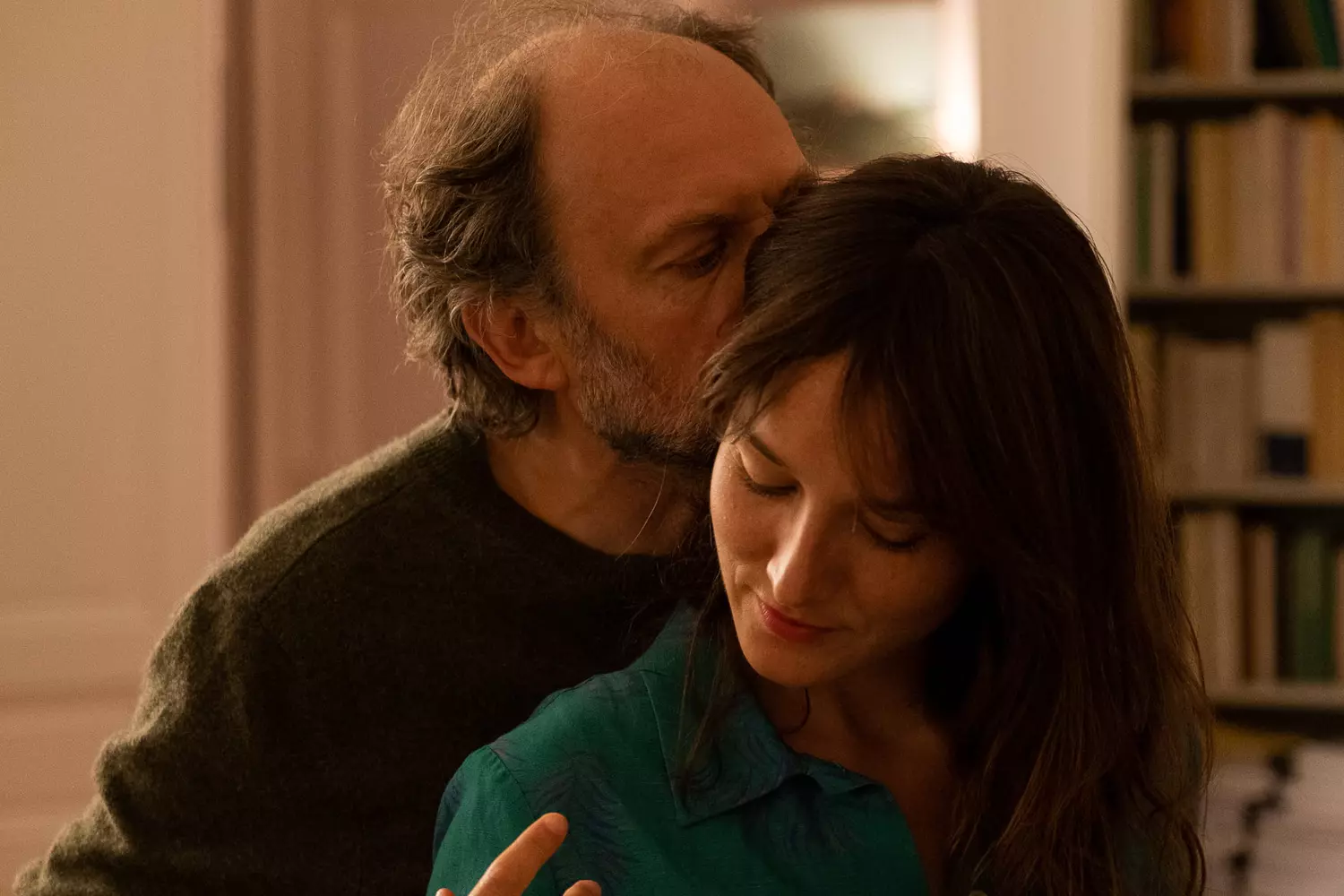Anaïs is hot. A pretty young French woman who wears a succession of dresses that show off her long legs, her bare arms, her lovely skin. With her hair cascading down her back, she’s a gorgeous, flighty, scatty, slip of a thing who, silly her, gets herself into the most terrible situations and then, skipping elegantly with an impish grin, escapes out of them back into her consequence-free existence.
Anaïs has a boyfriend, Raoul, but she doesn’t seem particularly interested in him. She has commitments to a university thesis but seems to be treating that in the same take-it-or-leave-it way. Early on she discovers she’s pregnant and so, alors, pops off to the clinic for a termination, just like that. Everyone who meets Anaïs falls in love with her free-spirited attitude, her flirtatious, coquettish manner. At a party she meets an older guy, Daniel (Denis Podalydès), who instantly is smitten, and soon she is sleeping with him. Later, she meets his wife, Emilie (Valeria Bruni Tedeschi), a successful author, and decides to bed her too.
Anaïs in Love (Les Amours d’Anaïs) is a comedy of manners, of errors, but not of laughs. We watch, in various stages of fascination or trepidation as Anaïs heads for what might or might not be some sort of showdown with destiny.
The fact that it’s Anaïs Demoustier playing the fictional Anaïs introduces the possibility that it’s a film about the actor herself, as does the knowledge that Charline Bourgeois-Tacquet wrote the film especially for Demoustier, after the actress appeared in her debut, a short called Pauline Asservie.
Perhaps. But the fictional Anaïs is also a version of the Manic Pixie Dream Girl. In the film writer Nathan Rabin’s coinage, she’s the quirky female who helps bounce timid American indie milquetoasts out of their man-boy self-absorption and into engagement with the world. Except MPDGs don’t have agency – they’re strictly catalytic. Again another perhaps – it might be better to see Anaïs as a revival of that old French New Wave character of the naive, gamine waif, all legs and haircut, beguiling everyone she meets with her insouciant directness. The MPDG borrowed the type, and now the French want it back.
It’s a sly portrait because for all her vigour – Anaïs runs so much – she’s locked, lost, inert, almost entirely passive, with the only signs of interiority or self-awareness coming from interactions with her mother (Anne Canovas), a woman who has just discovered her cancer has returned and has metastasised.
It’s Demoustier’s film, as it’s meant to be, and she puts on quite a show as the endlessly superficial Anaïs, while Denis Podalydès and Valeria Bruni Tedeschi seem vastly too qualified and venerable to be playing the roles they have, though Tedeschi does get to demonstrate a bit of range later on, as Anaïs and Emilie lock into a relationship of sorts.
There is naked girl-on-girl action, for those who pop films into their streaming queue for such reasons, though you wouldn’t bracket Anaïs in Love as seriously sensual, even though Bourgeois-Tacquet does her utmost to fetishise Anaïs, with so many shots of her looking lovely, in those girlish dresses which, if we were being unkind, might be just a touch too young for her. Another perhaps – that might be the point.
It’s a slo-mo car crash, in other words, with the actual crashing going on beneath the surface while Anaïs charges around at speed, hurling herself into one ill-advised situation after another and relying on her sheer physical charm to get her out of scrapes. The beautiful young woman who, beneath it all, is a bit of a monster.
Anaïs in Love – Watch it/buy it at Amazon
I am an Amazon affiliate
© Steve Morrissey 2023


